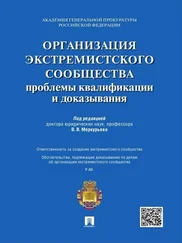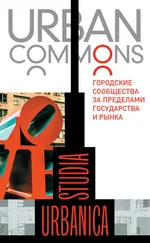Jeonse – особый тип договора аренды, появившийся из‐за резкого промышленного и жилищного роста в Южной Корее. Заключая контракт jeonse , съемщик вносит фиксированную сумму залога за временную переуступку ему права аренды и получает квартиру в свое распоряжение. При этом ему не придется вносить ежемесячную плату. Когда время аренды подходит к концу, залог возвращается. Обычно он составляет ⅔ от общей стоимости снимаемой собственности. Вместо ежемесячных выплат залог работает как депозит, который рассчитывается исходя из 12-процентной годовой ставки. То есть 100 тыс. долларов залога заменяют 1000 долларов, вносимых как ежемесячная плата. Залог такого типа – самый распространенный способ аренды квартиры в Южной Корее. Квак отмечает, что «люди, не располагающие собственностью, вверяют собственникам залог, который они собирали с большим трудом; собственники инвестируют этот залог в строительство жилых домов и получают внушительную прибыль». Подробнее см.: Donggi Kwak, «The Key Money, Is It Really the Best Choice?»
Bundamgeum собирают, чтобы расплатиться за месячные проценты, коммунальные платежи и еду. Поначалу bundamgeum составлял «по крайней мере 2000 вонов (2 доллара) в день». Сейчас он составляет порядка 4000–5000 (4–5 долларов) в зависимости от состояния дома.
Ту же ставку предлагают и крупные банки.
Jium, «A Network of Communities for Sharing, Autonomy, and Hospitality», City and Poverty (Dosiwa Bingon) 102 (2013): 62–76.
Elinor Ostrom, Governing the Commons: The Evolution of Institutions for Collective Action (New York: Cambridge University Press, 1990); Остром Э . Управляя общим: эволюция институтов коллективной деятельности. М.: ИРИСЭН; Мысль, 2010.
См. во введении к данному сборнику.
Gigi Roggero, «Five Theses on the Common», Rethinking Marxism: A Journal of Economics, Culture & Society 22, № 3 (2010): 357–373.
Michael Hardt and Antonio Negri, Commonwealth (Cambridge, MA: Belknap Press of Harvard University Press, 2009).
Концепция «обитаемого пространства» подробнее рассматривается у Анри Лефевра в «Производстве пространства» (М.: Strelka Press, 2015).
Vercellone, «The Crisis of the Law of Value and the Becoming-Rent of Profit».
Bin-Zib, «Bin-Zib and Anti-Capitalism Movement», Team Blog of Guests’ House Bin-Zib, http://blog. jinbo.net/house/359?commentId=907 (accessed Jun 4, 2014).
О пространственном устройстве Бин-Зиб см.: Han, «Communicating Communes».
Ostrom, Governing the Commons; Остром Э . Управляя общим.
Bin-Zib, «Introduction of Bin-Zib», Bin-Zib Wiki, http://binzib.net/wiki/index.php/%EB%8C% 80%EB%AC%B8 (accessed Dec 1, 2014).
Han, «Communicating Communes».
Hardt and Negri, Commonwealth, 8.
Bin-Go, «Statement of Purpose: Why Bin-Go?» Bin-Zib homepage, http://binzib.net/xe/index.php?mid=bingo&category=26078&document_srl=9891 (accessed May 3, 2014).
Han, «Communicating Communes».
Ibid.
Ibid.
Ibid.
Jigak, «The Duty of a Jangtu (long-term guests)», Bin-Zib Team Blog (blog), October 5, 2009. Accessed Aug. 29, 2014. [http://blog.jinbo.net/house/260].
Хан использует понятие политики Рансьера, чтобы описать, как участники работают, чтобы обеспечить конфигурацию «общего места». Ibid.
Ibid.
Sabu Kohso, Cities of Death and Streets of Life, trans., Seoulidarity (Seoul: Galmuri, 2013), 9.
Han, «Communicating Communes».
Michael Hardt, «The Common in Communism», Rethinking Marxism: A Journal of Economics, Culture & Society, 22, № 3 (2010): 353.
Silke Helfrich and Heinrich-Böll-Stiftung, eds., Commons. Für eine neue Politik jenseits von Markt und Staat (Bielefeld: transcript, 2012); Peter Linebaugh, The Magna Carta Manifesto: Liberties and Commons for All (Berkeley: University of California Press, 2008); An Architektur, ed., «On the Commons: A Public Interview with Massimo De Angelis and Stavros Stavridis» e-flux № 17 (2010); David Harvey, Rebel Cities: From the Right to the City to the Urban Revolution (New York: Verso, 2012); Peter Marcuse, «From Justice Planning to Commons Planning», in Searching for the Just City, Peter Marcuse et al., eds. (New York: Routledge, 2009), 91–102.
Linebaugh The Magna Carta Manifesto, Peter Linebaugh, «‘All for One and One For All!’ Some Principles of the Commons», CounterPunch Weekend Edition, January 8–10 (2010).
Massimo De Angelis, «Does Capital Need a Commons Fix?» Ephemera 13, № 3 (2013), 603–615.
Steven Katz and Margit Mayer, «Gimme Shelter: Self-Help Housing Struggles Within and Against the State in New York City and West Berlin», International Journal of Urban and Regional Research 9, № 1 (1985), 15–46; Justus Uitermark, «The Co-optation of Squatters in Amsterdam and the Emergence of a Movement Meritocracy: A Critical Reply to Pruijt», International Journal of Urban and Regional Research 28, № 3 (2004), 687–698.
Linebaugh «All for One and One for All!».
Max Rameau, Take Back the Land – Land, Gentrification and the Umoja Village Shantytown (Miami: Nia Interactive Press, 2008).
Tony Sparks, As Much Like Home As Possible: Geographies of Homelessness and Citizenship in Seattle’s Tent City 3, dissertation, Seattle: Department of Geography, University of Washington (2008); Tony Sparks «Governing the Homeless in an Age of Compassion: Homelessness, Citizenship, and the 10 Year Plan to End Homelessness in King County, Washington», Antipode 44, № 4 (2012); Talmadge Wright, Out of Place: Homeless Mobilizations, Subcities, and Contested Landscapes (New York: SUNY Press, 1997); National Coalition for the Homeless (NCH), Tent Cities in America: A Pacific Coast Report (2010); Abbilyn Miller, Determining Critical Factors in Community-Level Planning of Homeless Service Projects, dissertation, Urbana: University of Illinois at Urbana (2012).
Читать дальше
![Коллектив авторов Urban commons. Городские сообщества за пределами государства и рынка [litres] обложка книги](/books/387248/kollektiv-avtorov-urban-commons-gorodskie-soobches-cover.webp)







![Коллектив авторов - Гражданское право. Части вторая и третья. Краткий курс [litres]](/books/404815/kollektiv-avtorov-grazhdanskoe-pravo-chasti-vtoraya-thumb.webp)
![Коллектив авторов - Мозг и сознание [Разгадка величайшей тайны человеческого мозга] [litres]](/books/406124/kollektiv-avtorov-mozg-i-soznanie-razgadka-velicha-thumb.webp)
![Коллектив авторов - Рыба и морепродукты. Закуски, супы, основные блюда и соусы [litres с оптимизированными иллюстрациями]](/books/409945/kollektiv-avtorov-ryba-i-moreprodukty-zakuski-su-thumb.webp)

